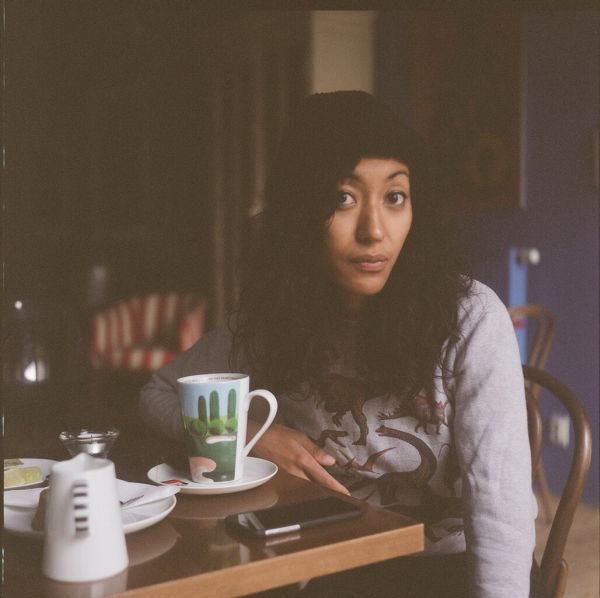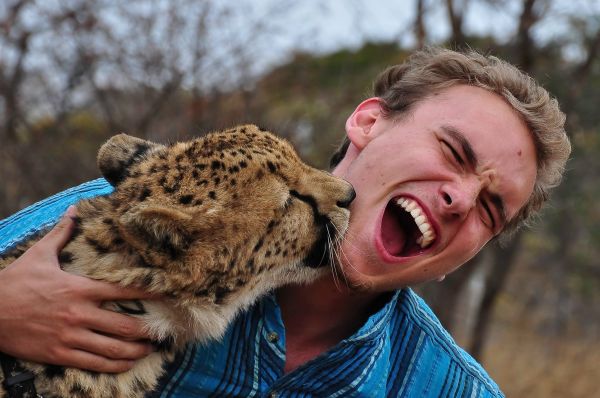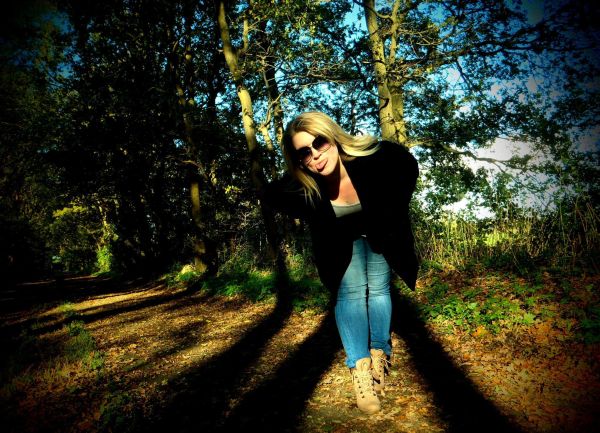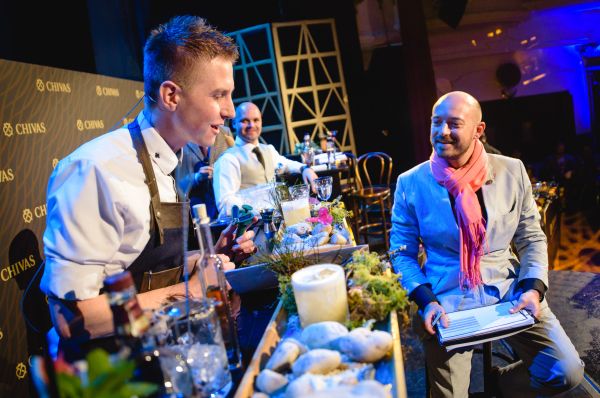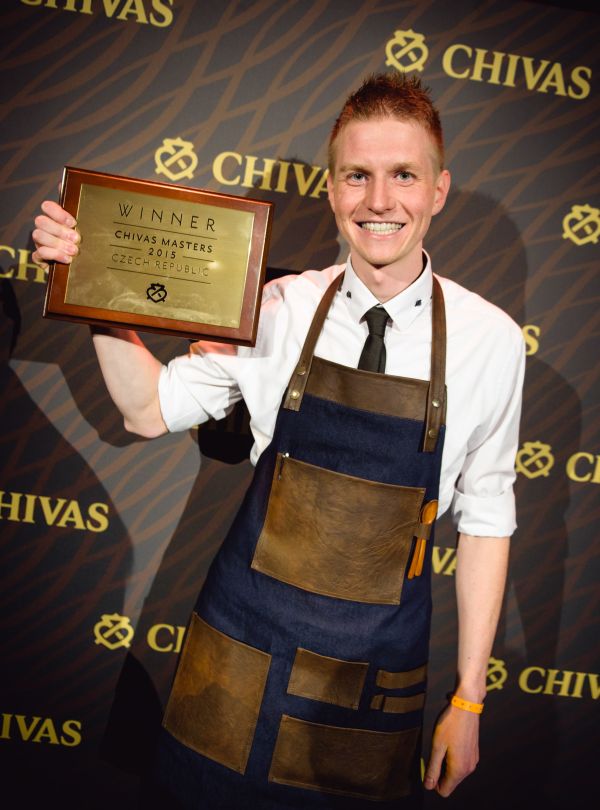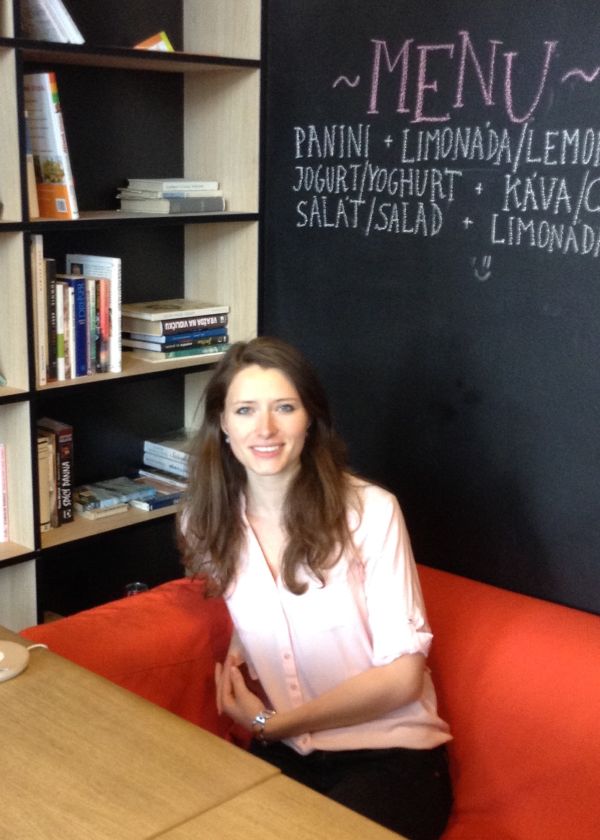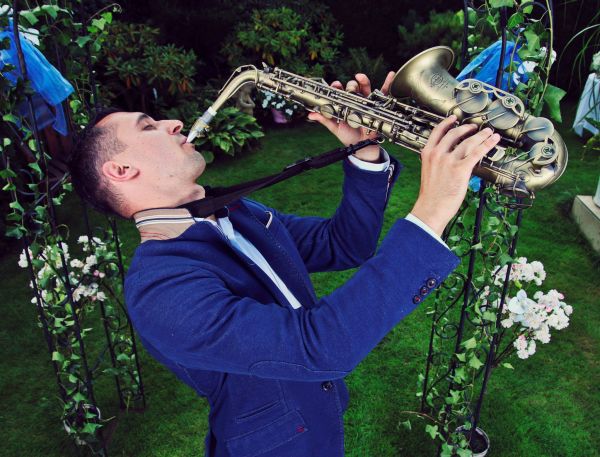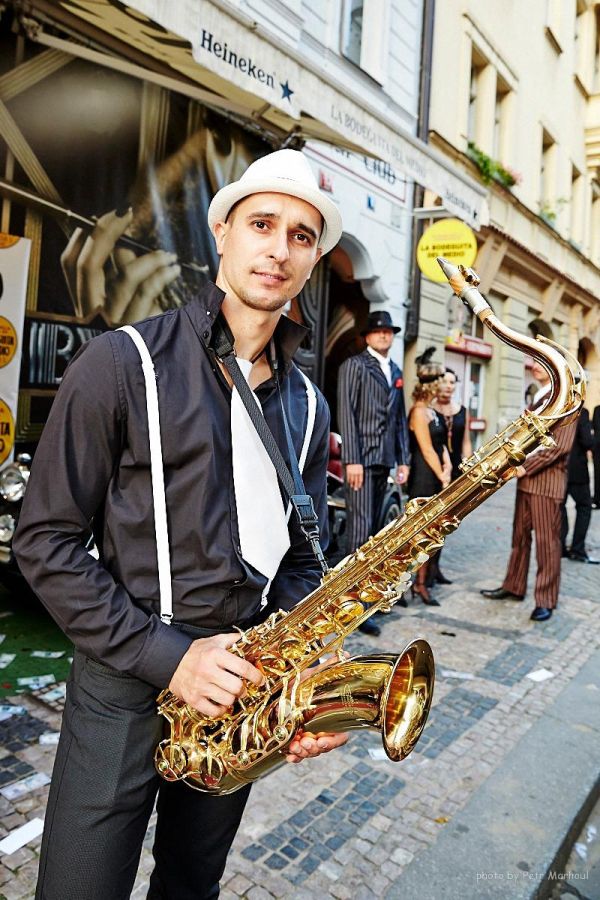
Concept and storyboard film artist Kurt van der Basch is surely a name that many in the Prague art and film scene would recognise. Originally from Canada, he moved to Prague to pursue a career in art which inevitably led him to film. Like many of us expats, he began teaching English. Kurt’s journey and career has been incredibly diverse and I’ve personally been looking forward to this interview for some time. On top of that, I’m also a major movie nerd so editing and listening back to this interview took a while – there were moments that I had to say to myself ‘Ryan, just shut up…” From working on recent Prague based films like Child 44 to sketching 100s of storyboard frames for the new Netflix series Sense8, there are some interesting insights into the film industry in Prague, and Central Europe… Not to mention some of Kurt’s early obsessions that got him into drawing in the first place. Enjoy!
Where are you from originally?
The east coast of Canada, Nova Scotia.. Halifax. Well, not really from Halifax, but from a suburban little town near there…. But we moved around a lot.
And what are your greatest memories of growing up in that part of Canada?
The landscape and the weather. The long winters, meter-high snow.
Do you miss the snow?
Sure, because I’m not into driving so it’s never really affected my day. I just love it. And there’s something cozy about the snow reflecting off the ceiling too – it kind of lights up a whole room.
What did you want to be when you were a kid?
I really wanted to be an Egyptologist. I had that worked out for years. I took it so seriously. I even had a newspaper cut-out of me somewhere saying “I want to be an Egyptologist” when I was about 12. 1986 I think it was. There are actually a lot of Czech egyptologists. It’s a specialty here, it’s always been a dream to go there but it would be really hard now.
When did you get into drawing?
I was always into it, as far as I can remember. I was always into drawing black and white, in pencil. My Mum would just sit me down and I would draw.
And what would you draw?
Well, I would obsess and draw one thing over and over again. I had a mermaid obsession, and the egyptology was a part of a lot of the stuff that I would draw too – I think that had a big impact on my drawing because it was so graphic and standardised. You know, a hand always looks exactly the same, so does a foot. So I’d really try and nail it. But then I got into music which became a huge diversion in my life. So then I would draw pictures of Beethoven over and over and over.
That’s really nice. To be so young and drawing Beethoven? That’s quite unheard of.
When I was 12 I broke my arm doing gymnastics in rubber boots on the grass… the wet grass (laughs). And it hurt so badly – it was coming out at a 90 degree angle.
Ouch!
Yes.. anyhow, I was in the cast for about a year and when I got it off I met a girl who played the piano and she was really good and she taught me some Beethoven so then I became obsessed. So my parents got me a used piano and a teacher. And as an obsessive gay boy with no friends, I would go home and practice and practice and all of a sudden I went from a total beginner to quite advanced in just a few years. Then I went to university and studied music. Everything was music. But the whole time I was drawing and drawing and drawing. You know, we have sort of a romantic idea of artists – that they should suffer and it should be really hard, and practise 7 hours a day. A lot of people, including me, find that very attractive. So I was a good artist, but because it came easily to me and there was no romantic suffering involved, I didn’t feel like it was a very special skill. The whole time my Mum was saying “why don’t you go to art school?” and I thought “please, I’m a pianist” (laughs). So then in my third year of studies I realised that I wasn’t mean to be a pianist, but an artist.
How did you get to Prague?
I was finishing music at university, and I sort of wished that I wasn’t because I wanted to be an artist. Originally I thought I wanted to be a painter, so I thought I had to go to Europe. I had a friend, Moira, who had moved to Prague to teach English, so I just copied her and came here to teach for three months and then all these fateful things happened… and that’s why I’m still here 16 years later.
Wow, a long time.
Yeah, I arrived the summer of 99.
That almost sounds like that Bryan Adams song.
Yes! Canadians roll their eyes at Bryan Adams, because he’s Canadian. We often give people from our own country a hard time.
How did you make this transition from teaching into art?
It’s so weird, you know when you think, oh god if I hadn’t met that person at that time.
Sure.
I had a friend who was a teacher and he had a friend who was working for Barrandov studios here. And she said that she knew some guys doing a movie who needed an art department assistant… Which means tea and photocopies but you have to sort of know something about art. So we got in touch and I brought them my sketchbook and they gave me the job, and yeah I did a lot of tea and a lot of coffee. But it was a fantasy movie and one time some things needed to be designed and drawn up earlier so they gave me a chance at it. So I just kept drawing and making photocopies. I could draw and also speak Czech which was good for them. Eventually I became a set painter and did that for three jobs and it was so great, I could have almost done that as a career actually. You’re filthy all the time and building scaffolding and stuff.
It’s nice to be able to use your hands like that.
Yeah, it was really great and we would go for lunch together and some people wouldn’t let us in because we were so dirty and black. 90% of what you paint is black. When we did Blade 2 we had to paint a big tunnel that was just hundreds of metres of white plaster bricks that we needed to paint to look like real bricks. Brick, brick, brick, brick (laughs).
(Laughs) Could get a little monotonous?
Monotonous but fun and the guys we worked with were really great. At the end of the day I just wanted to draw, so I left the set painting and got into the illustration side of film making.
How long did it take you to learn Czech?
Well I met my boyfriend after working here for two months and he didn’t speak any English – we’re still together after 16 years. I was gung ho because I’d just arrived and wanted to learn Czech. But you learn Czech mainly from arguments, so you know I would write words on my hand to arm myself for the next argument, like “irresponsible” (laughs). Hmmm I have to remember to say that to him. And I worked in bars too where my Czech improved a lot.
At what point did you think “I’ve made it, I’m living out a dream job”
The first time I saw my name in the credits, that was pretty cool. But cooler than that was the first time my parents and my sister saw my name in a credited movie that they went to the cinema to see. That was really cool.
Would you have any advice for other expats that come here and want to pursue their dreams?
Well, for me it was really useful to learn the language. I mean in Holland or Germany it’s hard to learn because everyone speaks English, but here it’s possible to learn it and really integrate with it. So that’s a big one. Learn the language. And also to get friends who are Czech.

What are some of your fondest memories on film sets?
Me and my friend Chris who also works in the movies, we worked on this movie Doom and we were doing this bio lab filled with hearts and lungs, and a veiny dildo that we snuck into the background 🙂 Anyway, we rigged them up with LEDs, it looked really cool. And during the filming we had to lie under the tables aqueezing air pumps to make them beat and move which was great. So that was a funny one.
(Laughs) That sounds brilliant. Now from what I understand, you’ve worked with some directors and filmmakers more than once. Tell us about some of them.
Well I have worked with Tom Tykwer on several things now and through him Wachowskis. Tykwer always uses the same team who I met on Season of the Witch. That was an amazing gig in Budapest but I also just fell in love with this art department and we’re really close now. And it was around this time that Tykwer’s designer Uli Hanisch said I had to buy this book called ‘Cloud Atlas’. This was in 2008 and he said a movie might happen, and then a couple of years later it did so I went over to Berlin to do a week long illustration workshop and then they used this as a pitch for the studios while the Wachowskis were doing the same thing with their art department in Chicago. Then a couple of years later it happened. I also had a job working with a Dutch designer on a children’s film. We really hit it off together so I’ve worked with him a bit. And there are also some commercial directors I always go back to, particularly those who specialise in hair. So for a long time the only commercials I did were hair commercials. Have I told you about this hair world?
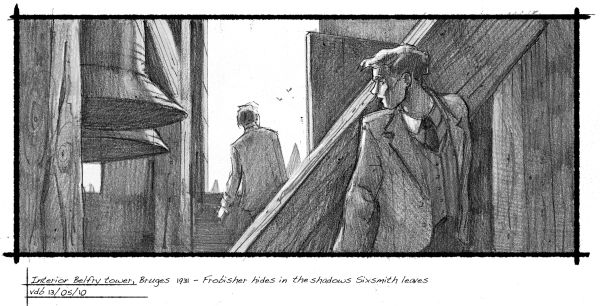
Cloud Atlas
No, please do.
Well with these hair commercials, the directors really guard their tricks. There is this one trick where they use a phantom slowmotion camera and there is this big rig that the hair model sits in like a guillotine with all these holes in it and they’ll bring the hair up in strands and spend about an hour setting this up. Then when they drop it, the weights fall down and it flies into the air and you think her head’s going to come off but instead the hair falls in these beautiful individual locks that they catch with a phantom camera. Then you get this slow beautiful Lars Von Trier look (laughs). They always want to use the same people, it’s very close. Commercials are great.
Now, you worked on Child 44 that was released recently, and it was actually filmed in Prague. For people that see the movie, can they recognise Prague there?
Constantly. Any exterior, even if you can’t see exactly where it’s done, you can still tell the sidewalk or a doorway and know that it’s Prague.

Child 44
I really look forward to seeing it. So, tell us about Sense8. Everyone is talking about this on the internet at the moment.
Wow, Sense8 is crazy. The crew said it was the hardest job they have ever done. It was filmed in Nairobi, Berlin, Chicago, Deli, Iceland.. everywhere. But I only worked on the Tykwer parts in Berlin, there was a director for each section. I think it looks really good, the trailers look great. Also Darryl Hannah seems so interesting and weird. All the crew on Sense8 pulled really long hours – I did too. For scheduling and budget reasons, Tom Tykwer could only bring me over to Berlin for a few days with the plan to storyboad only the trickiest action sequences but as we were considering them there was always one more and one more that would be great to have boarded out. SO in the end we were hammering them out in rough form at an incredible speed. I did more frames per day on this job than I ever have on any other one. I counted 280 drawings in 3 days. Though it shows! They’re awful but they do the job. It’s great to see how positive the reaction to the show is after the divided reception of Jupiter Ascending (another Wachowski film) and Cloud Atlas.

I think your hard work paid off. What work are you most proud of so far?
Cloud Atlas definitely. I think it’s a masterpiece. And as far as drawing work goes I really liked what I did on Child 44. I was quite impatient for that to come out. And also Jupiter Ascending. There were over 30 concept artists on that film.

Cloud Atlas Mural
It was stunning, and I also remember seeing the Prague dancing house in that movie!
Yeah! I noticed that too! That was funny. It really worked in that scene and in that environment, it doesn’t work here in Prague.

Jupiter Ascending
You don’t like it?
No, I don’t. It sticks out like a sore thumb. I think it’s arrogant to take such a beautiful vista and do something so attention-grabbing. I also did a comic book prologue for Dead Snow 2 which they passed out at Norwegian cinemas – that was nice.

I also saw on IMDB that you worked on the new Star Wars.. What can you tell me about that?
Nothing at all. The NDA on that job is major.
And what are you working on at the moment?
I’ve been in London for nearly six months on a big studio movie with another crazy strict NDA so you’ll have to wait for it to come out 🙂 Something else I’ve worked on that is due to come out soon is a Tom Tykwer and Tom Hanks film called A Hologram for the King. That was a really enjoyable Berlin job and I think it will be a good movie.
For the first time this July I’m also teaching a one week course at the university of West Bohemia about storyboard illustration and I’m very nervous about it.

Sounds great! I’m sure you’ll be fine. How would you describe Prague in a few brief words?
Prague is trashy and chic all at once – a great combination.
If you could go back in time and see anything, what would you see?
I would love to go back to ancient Egypt or late 18th century Vienna with Beethoven and Mozart around. That’d be really cool.
What is your favorite word in English and in Czech?
Does Polari count as English? Because I do like ‘Zhoosh’. In Czech I think Jejda is funny.
Who would play you in a movie about your life?
Some friends used to say I looked like Jonathan Rhys Myers, which I didn’t see. But then recently there were some pictures of him looking puffy and sad drinking straight out of a bottle of vodka on the street and I thought ok now I can sort of see it (laughs).
Where do you like hanging out in Prague?
Well actually I’m not a big hanger-outerer. Once in a while I go crazy but I spend a lot of time on my own. I really need it. So I hang out in our kitchen with our three cats a lot (laughs) and I also like going to the movies a lot. I’m also learning to play the accordion.
Keep updated with Kurt’s work on his Facebook page.
Check out the Sense8 trailer below:
https://www.youtube.com/watch?v=E9c_KSZ6zM
Written by Ryan Keating-Lambert. Photos by Ryan Keating-Lambert and Kurt van der Basch.











